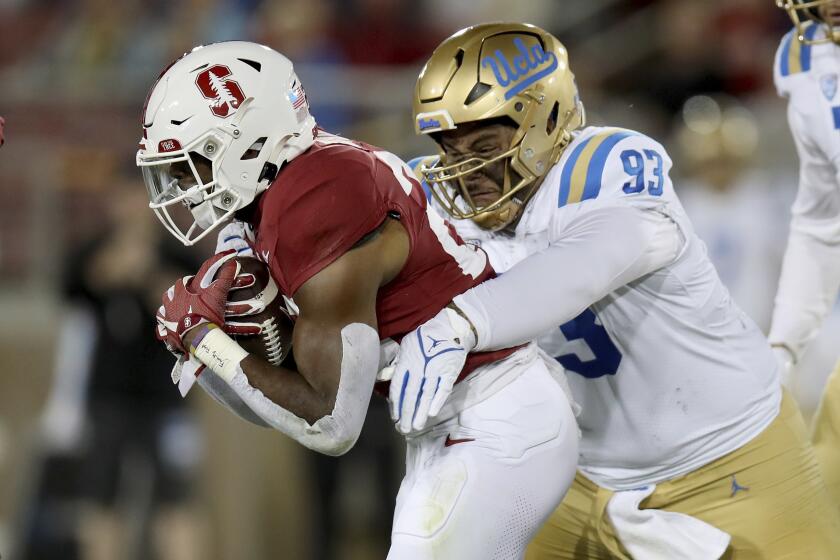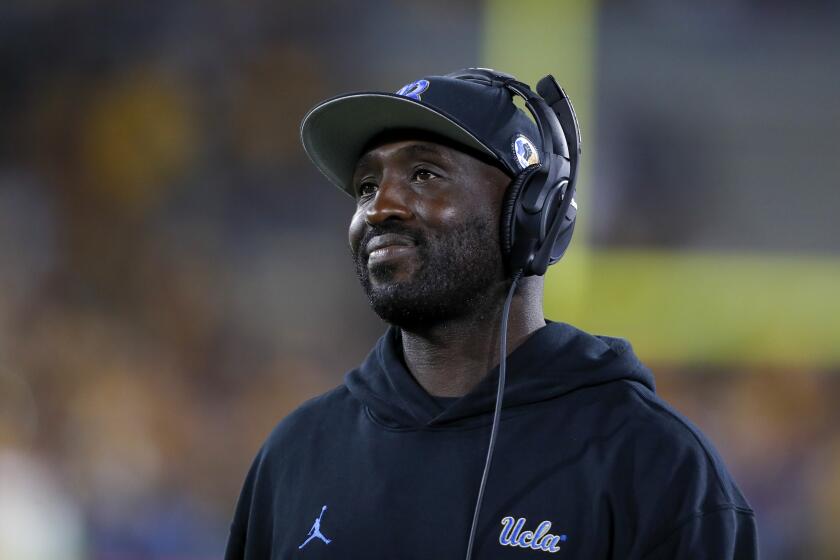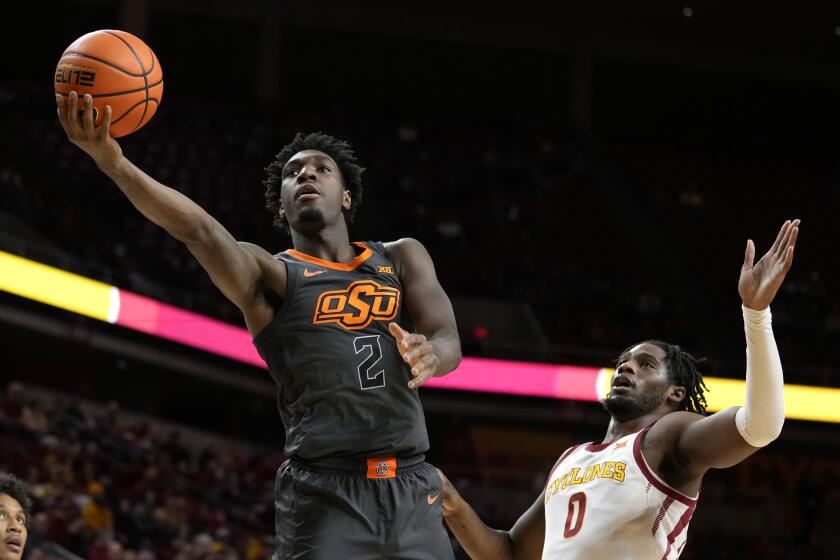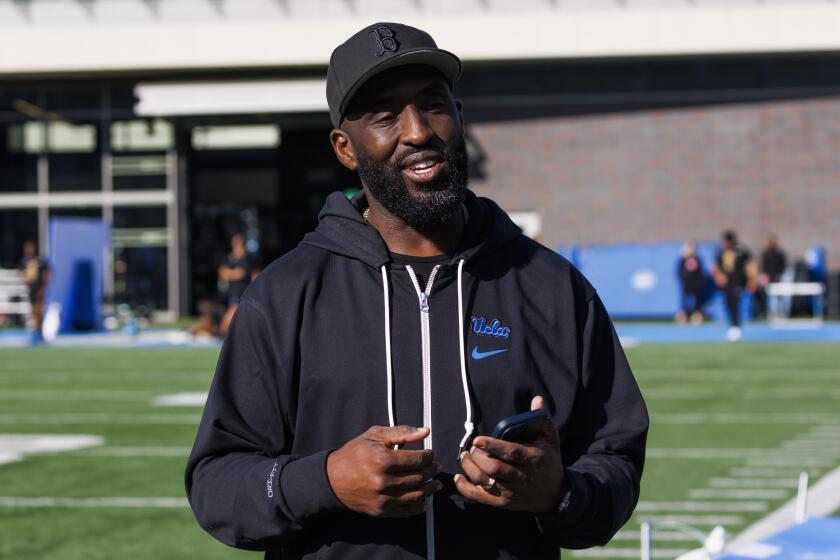Academic March Madness
If you’ve watched any of the televised men’s college basketball tournament this year, you’ve been bombarded by NCAA commercials that declare: “There are 380,000 NCAA student athletes ... and just about every one of them will go pro in something other than sports.”
It’s an uplifting tagline, but there’s a catch. In order to “go pro in something other than sports,” that athlete needs a college degree. And far too many male athletes in top-tier Division I basketball programs never graduate.
The teams that played in the Sweet 16 this year have some of the worst academic records in the country, particularly the top-seeded teams such as UCLA, where, on average, only 29% of men with basketball scholarships graduate within six years of enrolling. At the University of Memphis, which UCLA plays today in the Final Four, that number is 30%. Very few of those are dropping out to enter the NBA draft.
If Sweet 16 victories were based on the graduation rates tracked by the federal government -- the percentage of scholarship players who enrolled from 1997 to 2000 and graduated within six years -- who would come out on top?
The results are not the Final Four matchups happening in San Antonio. In fact, only one of the top seeds -- the University of North Carolina, with a 60% graduation rate -- would make this academic Final Four.
The University of Kansas and Memphis wouldn’t have made it even to the Elite Eight. UCLA would have been knocked out by Xavier University’s 67% graduation rate, meaning Ben Howland’s Bruins wouldn’t be headed to the Final Four for the third straight year. Instead, Xavier or Stanford University would be headed to the championship game, where they would play Davidson College.
Even more disturbing are the graduation rates of African American players at many of these elite basketball schools. At UCLA, for example, the graduation rate for black players is only 20%, in comparison to 100% for white players. These coaches and universities have a responsibility to ensure that all of their athletes are given the tools to graduate.
Amid the spectacle that is March Madness, it’s hard to keep this other kind of scoreboard in mind. But we need to applaud those teams that support the development of true student athletes, and rethink our glorification of those that simply use their players for tournament success.
Go beyond the scoreboard
Get the latest on L.A.'s teams in the daily Sports Report newsletter.
You may occasionally receive promotional content from the Los Angeles Times.



